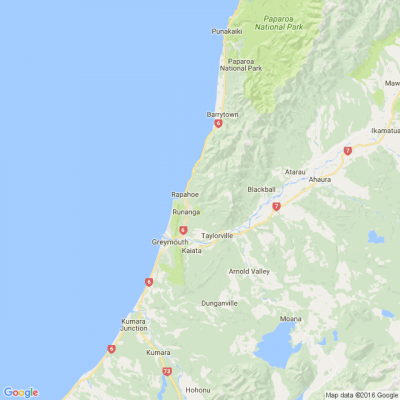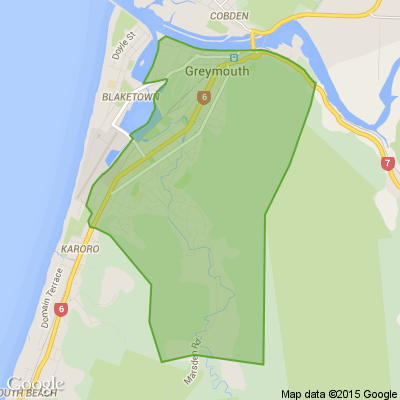Freshwater farm plan cost lamented
By Brendon McMahon
, local democracy reporter
Mounting compliance costs starting at around $10,000 and pushed onto West Coast farmers through new environmental measures, have been lamented at the West Coast Regional Council.
It comes as the formal rollout of the new freshwater farm plan requirements to begin in the next few weeks, which by 2025 will apply to all farming operations across the region above 20 hectares.
"If we bugger our farmer community, we may as well cut the rigging and go to Tasmania or whatever," councillor Frank Dooley said this week.
Council's acting consents and compliance manager, Rachel Clark, reporting to the Resource Management Committee, said council's intention around the farm plan rollout was to provide a standard template for the farming sector "for consistency".
However the impact on individual farmers, including the cost and complexity on top of a declining dairy payout, was worrying councillors.
Committee chairperson Brett Cummings asked if the new plans would effectively disallow what is currently regarded as permitted land use activity by farmers.
Clark said that was not the case currently.
"Ultimately the farm plans will be a form of consent but they are not currently," she said.
Councillor Andy Campbell, a Hari Hari dairy farmer, said what he could see was "the costs escalating".
He related the various requirements individual farmers were having to cover off to undertake the new farm plan regime, including different cost inputs from a variety of providers.
"Farmers are getting a bit concerned about these freshwater plans. They have to have a certifier, auditor, effluent inspection. The costs are escalating."
Campbell said the requirements needed to be "rolled into one" to make it simpler, otherwise the economics of any farm activity continuing for some was under threat.
"If you have a 20ha area of land you might be getting a bill for $10,000 ... are we going to destroy our little blocks of land or what?"
Councillor Peter Ewen said it was becoming "very onerous" for farmers on top of everything else.
"It doesn't help with the milk price. Things are getting tougher."
Cummings said much of the impact was "handed to council" by the Government.
Dooley said council had a responsibility to monitor the impact of the changes but suggested all aspects of the new regime be rolled into one process, and once a year.
"That would make it a damn sight easier for the farmers. I think that is a recommendation that needs to be taken back."
Planning and science manager Fiona Thomson said the council's intention was "to align wherever possible" various strands of the process.
Alongside this they planned to make as much information available as possible, "so farmers can make their own plans".
However, Dooley pointed out that the issue of external funding to implement the new regime was higher level and not necessarily trickling down to individual farmers who had to come up with the plans.
The risk now was not recognising the impact on the viability of the region's farming community.
Thomson noted the new process for farm plans was effectively "the same process" being imposed on the mining sector by the Government.
*Public interest journalism funded through NZ On Air
Time to Tickle Your Thinker 🧠
If a zookeeper had 100 pairs of animals in her zoo, and two pairs of babies are born for each one of the original animals, then (sadly) 23 animals don’t survive, how many animals do you have left in total?
Do you think you know the answer? Simply 'Like' this post and we'll post the answer in the comments below at 2pm on the day!
Want to stop seeing these in your newsfeed? No worries! Simply head here and click once on the Following button.

Poll: As a customer, what do you think about automation?
The Press investigates the growing reliance on your unpaid labour.
Automation (or the “unpaid shift”) is often described as efficient ... but it tends to benefit employers more than consumers.
We want to know: What do you think about automation?
Are you for, or against?

-
9.5% For. Self-service is less frustrating and convenient.
-
43.4% I want to be able to choose.
-
47.1% Against. I want to deal with people.
Have you got New Zealand's best shed? Show us and win!
Once again, Resene and NZ Gardener are on the hunt for New Zealand’s best shed! Send in the photos and the stories behind your man caves, she sheds, clever upcycled spaces, potty potting sheds and colourful chicken coops. The Resene Shed of the Year 2026 winner receives $1000 Resene ColorShop voucher, a $908 large Vegepod Starter Pack and a one-year subscription to NZ Gardener. To enter, tell us in writing (no more than 500 words) why your garden shed is New Zealand’s best, and send up to five high-quality photos by email to mailbox@nzgardener.co.nz. Entries close February 23, 2026.







 Loading…
Loading…